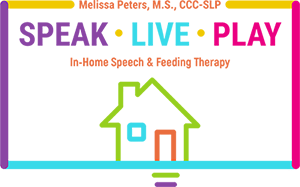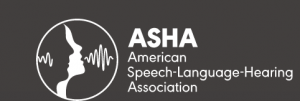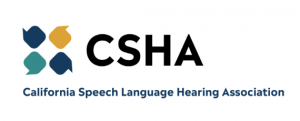Speech therapy is the practice of helping patients living with speech, language, cognition, and communication disorders. These conditions vary highly and present themselves in various ways, with aphasia being only one among many that Speak Live Play professionals are trained to deal with.
What is Aphasia?
Aphasia refers to the inability of a patient to understand or formulate speech or language as a result of injury to a certain part of their brain. In many cases, this brain injury will be brought about by the onset of a stroke or head injury such as those often found in road accident victims.

There are instances, however, where it may come about in a gradual manner due to the growth or of a slowly progressing tumor in the patient’s brain. Certain neurodegenerative diseases will also have the capacity to gradually bring about aphasia. The degree or severity of a patient’s aphasia will be directly tied to the extent and cause of the brain damage in question.
How Aphasia Affects Speech and Communication in Patients
To fully understand the ways in which aphasia affects patients, it will be helpful to get into the various types of conditions that are prevalent in the populace and how their characteristics vary from one type to the next.
Comprehensive Aphasia
This is also referred to as Wernicke’s aphasia or fluent aphasia and is characterized by the patient’s ability to speak at length and fluently in complex sentences that turn out to be incorrect, unrecognizable, or otherwise full of unnecessary words. It will be noticed that they have a poor grasp of the language, even though they have been speaking it since birth, and will be unable to recognize that others do not understand what they’re trying to say.
Global Aphasia
With this category of aphasia patients, it will be observed that forming words and constructing sentences will be a challenge, in addition to a general poor speaking and writing comprehension. This type of aphasia is attributed to extensive damage to the networks that make up the language regions of a person’s brain. Generally speaking, these patients will present with severe comprehension and expression difficulties.
Expressive Aphasia
Also referred to as non-fluent or Broca’s aphasia, this type is characterized by the patient’s ability to understand what is being said to them, but have trouble speaking and in a way that is easily understood in turn. To give an example, a person with this type of aphasia may say “Want water” rather than the more appropriate and expected “I’d like a glass of water”.
While the person listening to the patient might have little difficulty in discerning the meaning behind their words, the patients themselves will be aware of the trouble they are having with communicating their thoughts, which can be a very frustrating situation for them. In some instances, you will find patients presenting with this type of aphasia to also have accompanying right-side weakness or paralysis.
Deaf Aphasia
Although somewhat rare, there are recorded instances of patients who are deaf exhibiting the symptoms of aphasia. Sign language is, after all, a language in itself, and one that works by utilizing the same brain areas that spoken languages do. Individuals in the deaf community who previously had advanced sign language communication techniques have been observed to exhibit the same denigration of their communicative abilities as a result of injury or damage to the same brain areas as those who relied on vocalization to communicate. In short, global and expressive aphasia is a reality in the world of the deaf, which will require the attention of speech therapists to rectify.
Speech Therapy for Aphasia Patients
In essence, aphasia is a condition that robs a patent of their ability to speak and communicate effectively, which makes it a disorder best dealt with by a dedicated speech therapist. To understand the circumstances where a speech therapist should be called in, watch for the following symptoms:

- Inappropriate substitution of one word or sound for another in speech
- Unrecognizable words in spoken communication
- Inability to understand what others say
- Insensible written communication
- Sentence structures that do not convey understandable messages
- Spoken language consisting of incomplete or inexplicably short sentences
In brain injury of stroke cases, the accepted wisdom is that the sooner remedial measures are taken, the better, since there is often some measure of recovery possible in the early stages of the injury. This presents a rather brief window of opportunity where the most therapeutic gains might be realized.
In these circumstances, a speech therapist will be able to administer tests to discern the patient’s capacity to construct sentences, find appropriate words, and generally express themselves at the level expected of their age, education, and previous capabilities. Therapists will find out and estimate the patient’s ability to identify objects, answer questions, carry out verbal commands, have a general conversation, and so on.
Goals of Speech Therapy for Aphasia Patients
It is important to keep in mind that people with aphasia will rarely experience any reduction or deficiency in their mental capacity or cognition – they simply will be limited in their ability to express themselves as they used to. This will often be a source of frustration, not only for the patients themselves, but for their caretakers, friends, family, and all those around them as well.

A vital function of a professional speech therapist will be to make it understood to all parties involved just what is to be expected in terms of the reality of the condition. Patients and all those with direct involvement in their well-being will be fully appraised as to what they may expect; the potential for recovery; and will be given the tools and knowledge to realize the fullest recovery and restoration of the patient’s capabilities possible in all scenarios.
To give an idea of what a speech therapist might be able to do for you, here’s a quick look at some of the considerations they make in the course of formulating each client’s personalized treatment regimen:
Occupation: It’s not hard to imagine that the type of speech therapy that a professional singer would require might be different from what a librarian would require, given the same circumstances. While speech therapists will always aim for the maximum rehabilitation possible, they will consult with the patient and find out the level they hope to attain as their personal or professional goals.
Social life: Aside from work, people are social beings for the most part, and this plays an important role in determining individual self-esteem and pride of place in society. Therapists will look beyond this to find out what measure of social support is available to the client – are your family, friends, caretakers, colleagues, and everyone else you interact with on a regular basis willing and able to accommodate the client’s condition? Training seminars, informational materials, and training seasons for those around affected clients are available in order to make the processes of therapy, recovery, and beyond as trouble-free and convenient as possible for everyone involved.
Why Choose Speak live play?
Speech therapy is an intensely personal type of intervention, requiring close interaction between the patient and professional for best results. With Speak live play, patients of all ages will be guaranteed the level of attention and care necessary to achieve the best results, no matter what the age of the client or the severity of their condition. Make the call today!



